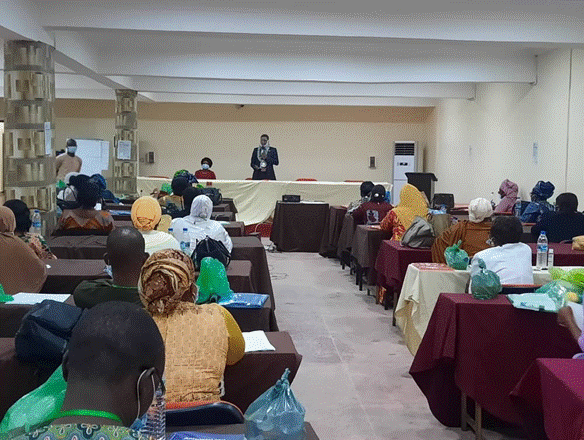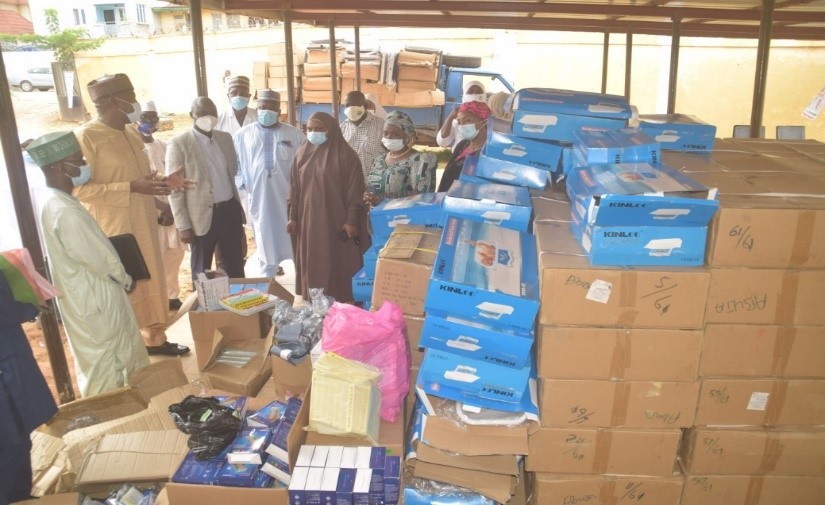
LSTM’s Global Fund and Allied Programmes Unit (GFAPU) working in cooperation with the State Ministries of Health in Kaduna(opens in a new tab) and Oyo and the State Primary Health Board in Kaduna (SPHCB) recently completed the initial phase of an implementation programme to improve availability and quality of integrated HIV, TB and malaria services in antenatal and postnatal care in Kaduna and Oyo states in Nigeria.
The start of the programme in April 2020 coincided with the outbreak of the Covid-19 pandemic, which provided a unique set of challenges and opportunities. The implementation partner African Field Epidemiology Network (AFENET) and in-country representatives supporting the State Ministries of Health required much tighter cooperation and coordination to ensure the technical assistance and knowledge transfer from LSTM was delivered to the highest standard. For the first time, operating remotely via online platforms, the cascade training was successfully used as a model for implementation, offering additional opportunities for local capacity building for course directors and master trainers, with a pool of 48 trainers now in place.

An initial assessment of 120 target healthcare facilities was used to tailor the programme. The intervention package, adapted to the specific context in Nigeria, comprised two modules: essential components of antenatal and postnatal training and quality improvement with focus on standard-based audit. In addition, essential equipment to deliver improved care was distributed to all the sites.
The team involved in the programme successfully delivered the programme and achieved all its targets within time and budget. Overall, 362 healthcare providers were trained in antenatal and postnatal care and a further 120 in quality improvement. The programme has been very positively received by the beneficiaries and healthcare providers.
Of the ANC-PNC course:
“This course is rated a hundred percent. All the facilitators performed wonderfully. The class sessions were so lively, with no dull moments at all.”
“I loved the way the breakout sessions were facilitated; I have definitely improved my skills.
Of Quality improvement:
“I now understand quality improvement models in antenatal and postnatal care”.
“I have now realised that improving quality of care is not only about having adequate resources but effective and efficient use of the available resources, positive attitude including good governance.”
In the next phase, the programme aims to build on these achievements and continue the implementation under the leadership of the Ministry of Health in strengthening the provision of services for mothers and babies, and by that contributing to improving the health outcomes in the target states. Dr Barbara Madaj, Head of Technical Delivery at GFAPU explained: “Building strong foundations and sustainability is critical for intervention programmes such as ours to have lasting effects, which is why we are extremely grateful for the continued support from the funders, the Ministries and all the stakeholders. Despite the challenges created by the pandemic, this programme has proved that strong teamwork and commitment makes it possible to achieve great things even under difficult conditions and we are anxious and excited to continue the work in Kaduna and Oyo.”
The programme was generously supported with funding from the Global Fund to fight AIDS, TB and Malaria and the Management Sciences for Health.